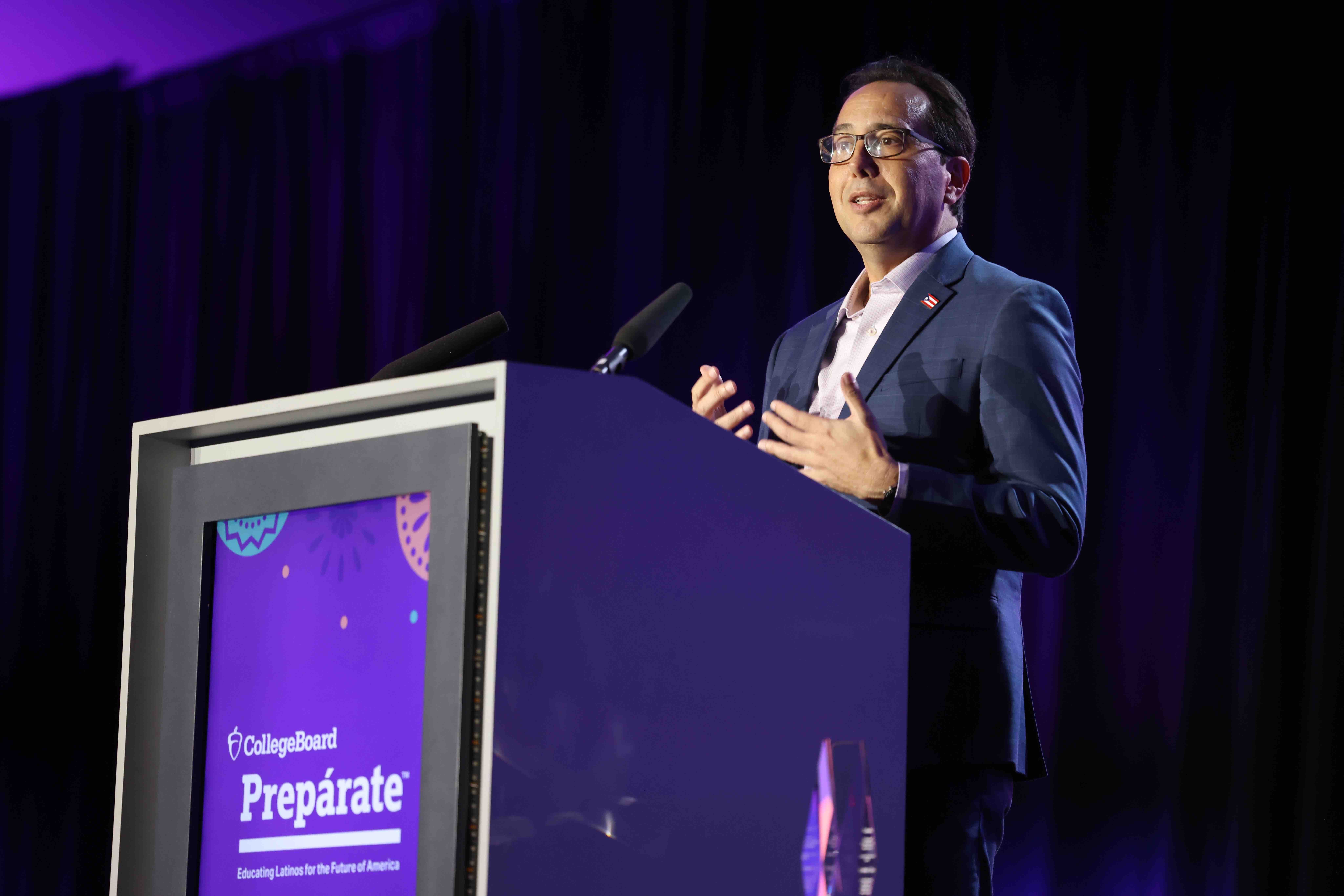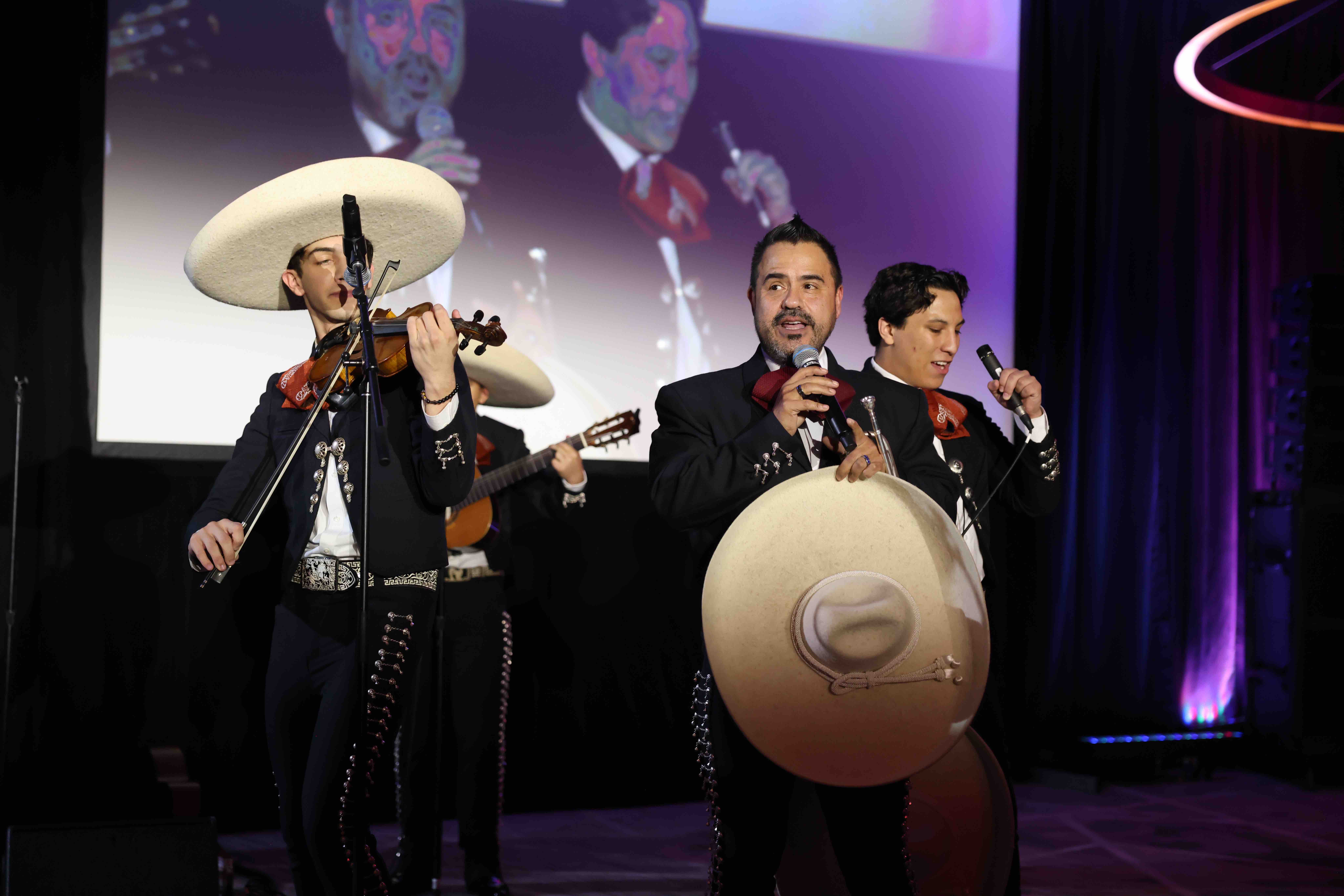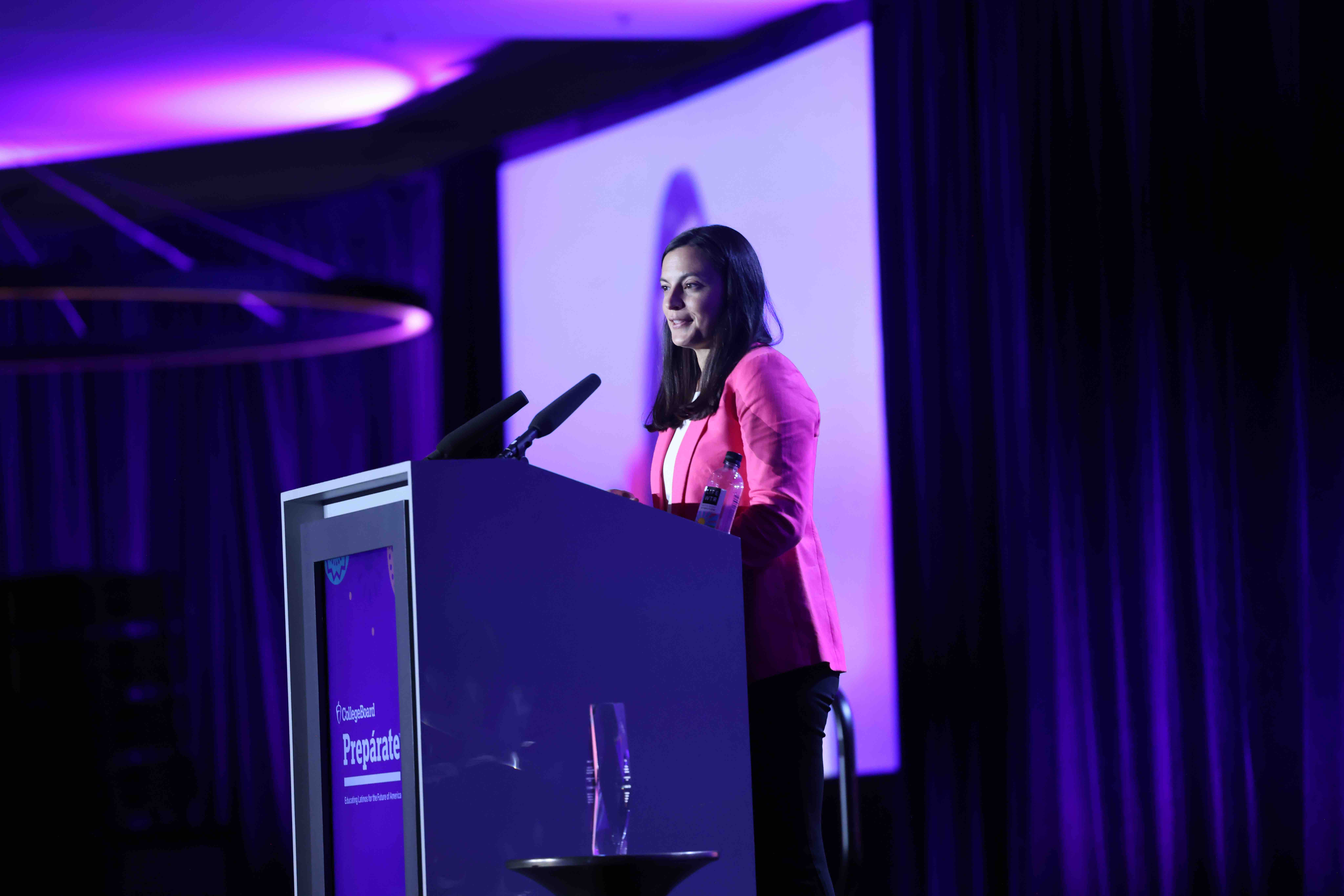Prepárate 2024
Prepárate 2024 Welcomes Educators to Celebrate Heritage and Uplift Latino Students

Pictured: Pablo Martinez on the plenary stage at Prepárate 2024
At the 2024 Prepárate™ Conference, Pablo Martinez was proud to share that Puerto Rico is not only his home but also houses the College Board office that has developed assessments serving Spanish-speaking students in Latin America and the Caribbean for 60 years.
During his welcoming remarks, Martinez stood at the podium issuing a rallying call to the community of Latino educators before him:
I want to encourage all of us to connect with one another, to draw on our collective strengths, to discover our shared values, and to celebrate the rich tapestry of our cultural heritage as we seek to advance educational excellence within our communities.
Pablo Martinez, Vice President, Latin America, College Board

Pictured: Mariachi Paredes de Tejastitlán at Prepárate 2024; ; Dr. José R. Torres-Ramos (center)
Before remarks continued, a performance by the Mariachi Paredes de Tejastitlán, an advanced ensemble from the University of Texas at Austin, entertained the crowd.
As band director and UT Austin lecturer of ethnomusicology Dr. José R. Torres-Ramos explained, “Mariachi is one of the many, many folk music traditions in Mexico ... it’s come to represent Mexican identity. In Texas, it’s become so popular that music programs have now included mariachi ensembles.”
Next, Priscilla Rodriguez, senior vice president of college readiness assessments at College Board, reflected on her work leading some of the College Board programs that changed her life.
During her tenure, Rodriguez has led the SAT Suite of Assessments through several milestones—the disruption of covid-19, the transition to digital testing, the SCOTUS decision on race in admissions, and now the trend of universities returning to requiring SAT scores.
She described her work as “an honor and a responsibility that I take very seriously.” Her work is also connected to her family’s story—a story not unlike those of many children of hard-working immigrants.

Pictured: Priscilla Rodriguez on the plenary stage at Prepárate 2024
Rodriguez described her parents with reverence. Her mother and father emigrated from Colombia as teenagers, leaving behind their loved ones, to try to find a path upward in the U.S.
Her parents had limited resources—putting themselves through college while working 40 to 50 hours per week on campus and in odd jobs. After completing their bachelor’s, they took turns earning their master's degrees and “climbed rung by rung up the ladder in the U.S. ... working their way eventually to the jobs that gave us a solid middle-class life.” As they put down roots for their family, they prioritized finding a home in an area with a great public school system.
While she was in high school, College Board’s programs helped make college readiness possible, recalls Rodriguez.
AP® classes inspired her with challenging coursework and afforded college credit. The PSAT/NMSQT® and SAT showed Rodriguez, her parents, and counselor that she should aspire to go to a great college—and connected her with scholarships to be able to go there. Then, the student search program brought information about colleges straight to her mailbox. “I read every one of those [college] brochures with my parents,” she says.
She says to Prepárate’s attendees:
I’ve never stopped picturing students like me and students like the ones you serve. Students who don’t have capital—the financial kind or the social kind—to tap into as they think about life after high school. They are at the center of the work we do, the decisions we make every day, and the way that we judge our impact.
Priscilla Rodriguez, Senior Vice President, College Readiness Assessments, College Board
The goal of College Board, Rodriguez says, is to make our work “the most effective door openers for all students—to college, to scholarships, and increasingly to career education and career opportunities.”
